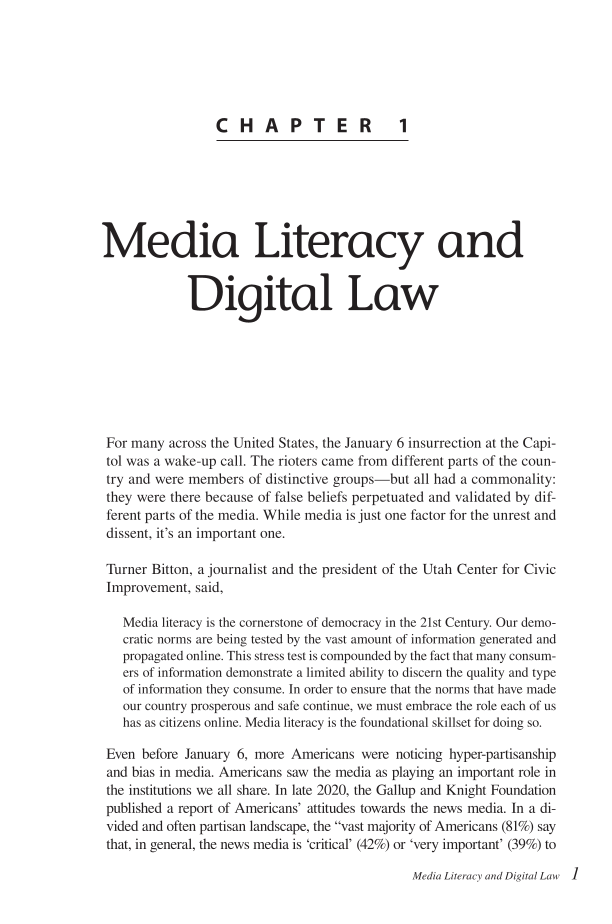Media Literacy and Digital Law 1 C H A P T E R 1 Media Literacy and Digital Law For many across the United States, the January 6 insurrection at the Capi- tol was a wake-up call. The rioters came from different parts of the coun- try and were members of distinctive groups—but all had a commonality: they were there because of false beliefs perpetuated and validated by dif- ferent parts of the media. While media is just one factor for the unrest and dissent, it’s an important one. Turner Bitton, a journalist and the president of the Utah Center for Civic Improvement, said, Media literacy is the cornerstone of democracy in the 21st Century. Our demo- cratic norms are being tested by the vast amount of information generated and propagated online. This stress test is compounded by the fact that many consum- ers of information demonstrate a limited ability to discern the quality and type of information they consume. In order to ensure that the norms that have made our country prosperous and safe continue, we must embrace the role each of us has as citizens online. Media literacy is the foundational skillset for doing so. Even before January 6, more Americans were noticing hyper-partisanship and bias in media. Americans saw the media as playing an important role in the institutions we all share. In late 2020, the Gallup and Knight Foundation published a report of Americans’ attitudes towards the news media. In a di- vided and often partisan landscape, the “vast majority of Americans (81%) say that, in general, the news media is ‘critical’ (42%) or ‘very important’ (39%) to
Document Details My Account Print multiple pages
Print
You have printed 0 times in the last 24 hours.
Your print count will reset on at .
You may print 0 more time(s) before then.
You may print a maximum of 0 pages at a time.

































































































































































































